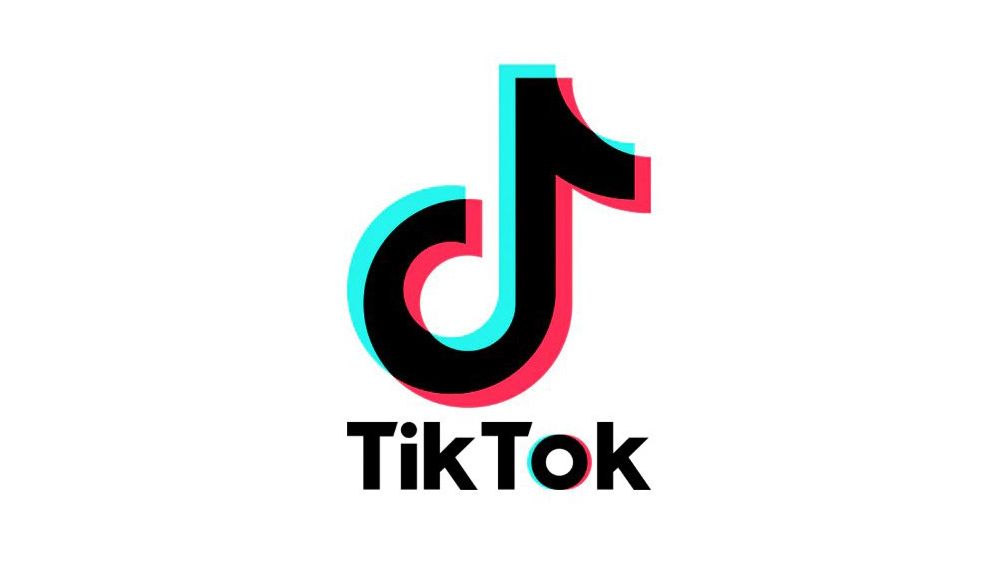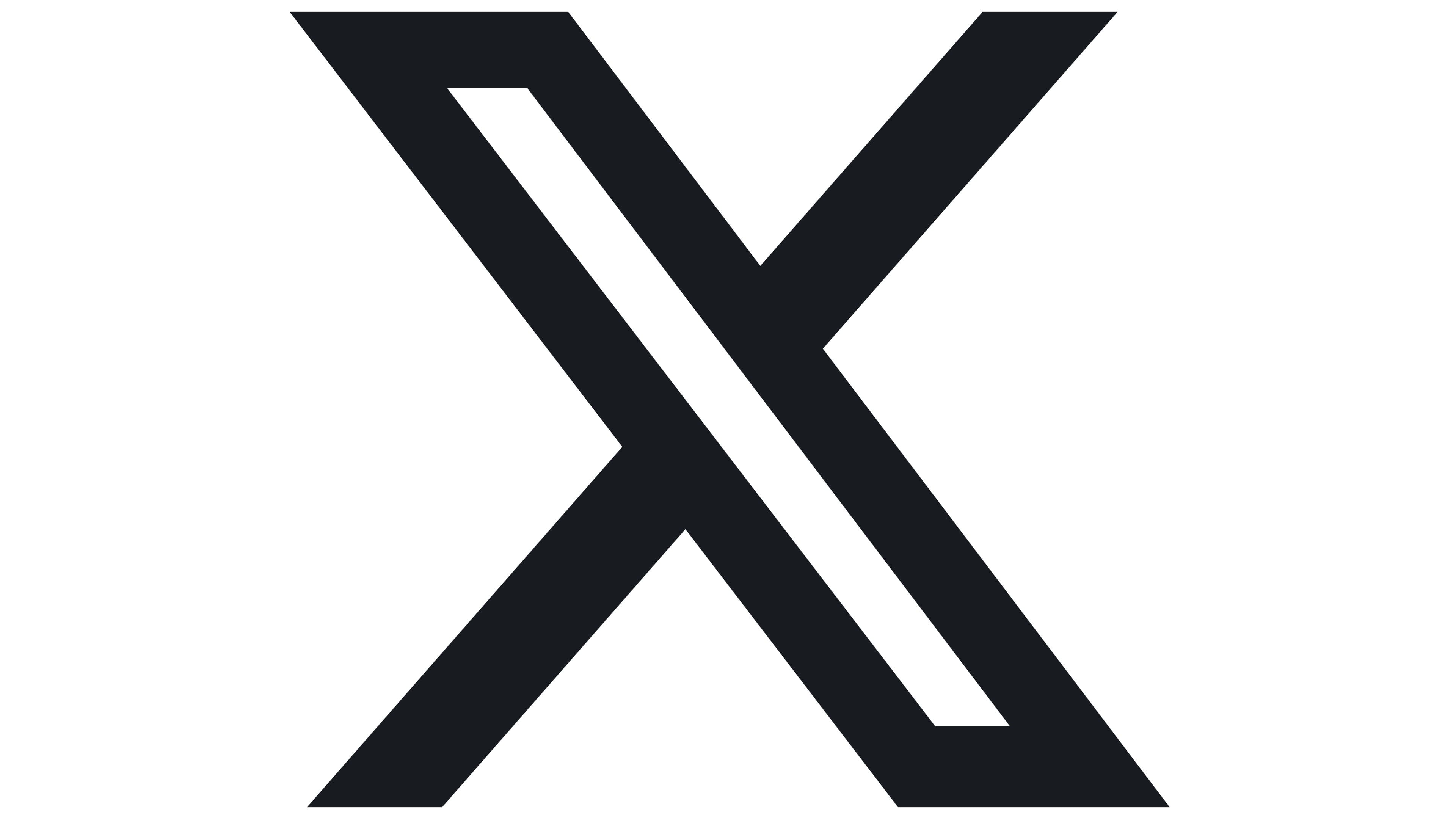What would you want included, changed or removed from the Tax Laws (Amendment) Bill 2024?
The new Tax Laws (Amendment) Bill, 2024 and Tax Procedures (Amendment) Bill, 2024, follow the rejection of the Finance Bill, 2024 and presented another opportunity for the Government of Kenya to revisit some of the provisions that it had proposed in the Finance Bill, 2024 that the public rejected. While the Finance Bill, 2024, sought to introduce significant changes, the lack of assent underscored the need for further review and dialogue. In response, the new proposals refine those proposals and introduce new measures. The public was invited to submit their views on the bills between 25 November 2024 and 28 November 2024.

This Bill sought to introduce key changes in Income Tax, VAT, and Excise Duty, impacting employees, retirees, businesses, and multinationals. 📊💡
For example, some key proposals included:
- Enhancing employee take-home pay through increased tax-free benefits 💵.
- Taxing digital platform earnings to ensure fairness in Kenya’s digital economy 🌐.
- Promoting local farming with reduced excise duty for products like cassava and sorghum 🌾.
- Enhanced pension benefits with tax-free contributions for retirees 👴👵.
We recognised that the voices of the youth was needed to shape these critical conversation! zKe conducted a series of consultations with the youth both offline (through public youth Barazas), on radio/ TV and on digital spaces including on zKe social media channels, on X spaces and using deliberative technologies such as Pol.is.
Youth Barazas
zKe conducted a series of in-person youth Barazas/ assemblies in five representative counties in Kenya, including Homabay, Nairobi, Nakuru, Kitui, and Mombasa. A total of 152 representative youths from these counties discussed the question on Tax Laws (Amendment) Bill 2024.
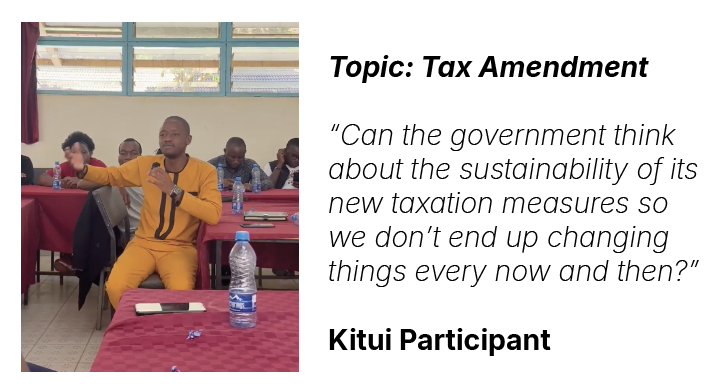
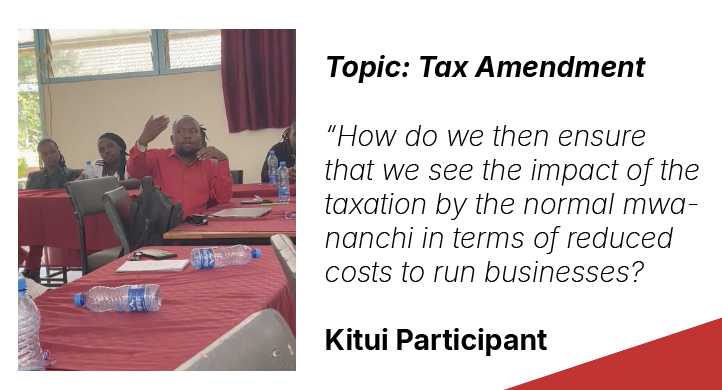
Digital Consultations

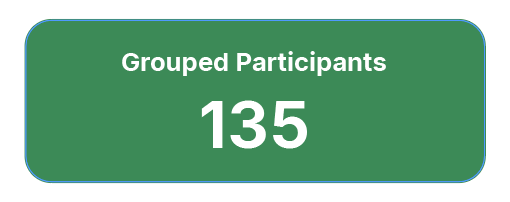
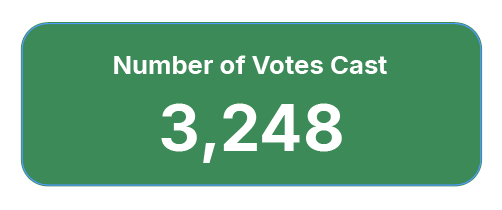

From the total of 239 participants, the majority, representing 66%, identified as young people belonging to Generation Z.

The results of the online conversation show us that the majority of the Youth could not distinguish between the proposals under the Tax Laws (Amendment) Bill 2024 and the Finance Bill 2024, and therefore proposed solutions or views that were unrelated to the new Tax Laws (Amendment) Bill or some requested for a more extensive literacy programme before floating the bill for public participation.


Note: The pol.is platform allows us to identify both the statements that received the highest number of agreement or disagreement votes and the statements with the highest or lowest group informed consensus. In summary, group informed consensus is a measure of how favorably a statement is viewed by people who otherwise disagree with each other. Statements with high group informed consensus scores (we’ll call these “consensus statements”) are often those that bring everyone together across dividing lines; statements with low group informed consensus scores (we’ll call these “divisive statements”) are often those that are likely to be most divisive because they have strong agreement from one group and strong disagreement from another group. Please see the notes at the end for a more detailed definition of group informed consensus and how this differs from majority voting.
Most Consensual statements
The youth reached a 60% consensus advocating for greater accountability in tax usage, rejection of additional taxes like the eco-levy in favour of climate finance grants, capping taxes at 25% of gross salaries, addressing corruption, supporting self-driven youth employment, and zero-rating taxes on essential farming inputs, aligning with the need for equitable and transparent tax policies under the Tax Laws (Amendment) Bill 2024.
💡 The most consensual views in the conversation included:
- A need to include a section in the bill that outlines how the taxes have been used and track accountability
- One, we dont want anymore taxes aside from the ones already imposed on us. 2, we dont want ecolevy taxes, we want climate finance grants.
- We dont want taxes to go past 25% of our gross salaries.Its like we are slaves working to pay our dues and only take home 39%, this is No!
- No more taxes, the government account for taxes imposed by curbing corruption. Youths created employment without government assistance.
- We need to protect the farmers by making farming equipment and materials more accessible an zero rate the taxes of seeds and fertilizer
Most divisive statement
The most divisive statements revolved around whether digital content creators earning over 500,000 KES monthly should be taxed at 3% and whether they should bear a similar tax burden to employed Kenyans earning 40,000 KES, who are taxed at 30%.

All the statements/ views can be accessed here.
X Space Conversations
zKe hosted X Space conversations with the youth to discuss the Bill, during which the majority expressed significant dissatisfaction with the high levels of corruption in government, resulting in the loss of funds collected through taxation. The key recommendation from the discussions was for the government to prioritise tackling corruption to ensure that efforts to expand the tax base yield results and contribute meaningfully to national development.

Social Media Engagement
Below are some of the engaged content from zKe on the Tax Laws (Amendment) Bill 2024 on different platforms:
